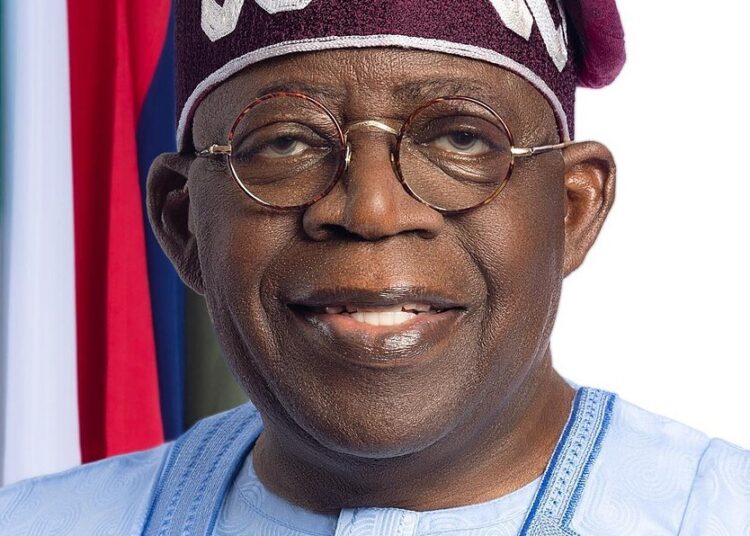The song was very popular at the time it was released. It brought a lot of excitement into the entertainment scene and no party was complete without it. The popularity went beyond the Gen Z population as the older men and women also caught the bug of the rave of the moment. I salute the ingenuity of Harrysong, the man who brought so much excitement and panache to music industry. Beyond the catchy rhythm, however, it now serves as a poignant metaphor for Nigeria under President Bola Ahmed Tinubu, a country that danced through the noise of radical economic reform and now longs for harmony and relief.
‘Reggae’ is a music of lamentation, rebellion, activism, emancipation, sobriety, disruption and change. Blues, on the other hand, depicts an atmosphere of freshness, renewal, relief, healing, relaxation, joy and comfort. It is played for warmth, closeness, eerie of satisfying conditions and general well-being.
President Bola Ahmed Tinubu’s administration has been marked by significant reforms aimed at overhauling Nigeria’s economy. However, these reforms have come at a cost, leaving many Nigerians reeling from the impact. As the President begins his third year in office, it’s essential to acknowledge the hardships faced by citizens and urge him to implement measures that will brighten their day.
Since assuming office in May 2023, it has been a loud ‘reggae’ of reform. President Tinubu’s administration embarked on an ambitious reform agenda which include:
– Fuel Subsidy Removal
– Currency Deregulation
– Electricity Tariff Adjustment
– Tax Code Review
– Public Sector Rationalization
These measures, while it may be economically justifiable in the long-term, had turned things upside down for most Nigerians and brought untold hardship. Fuel prices soared by over 300%, and with it came the astronomical cost of transportation and doing simple things (like grinding pepper) that relied on energy consumption. The Naira depreciated from ₦460/$ to over ₦1,500/$, and every other thing; medicines, food, staple items, etc. ballooned to the roof and went beyond the reach of the common man. The cost of living has skyrocketed, with food inflation rising to 37.92% in February 2024. The whole country is in turmoil and the Nigerian Labour Congress & Trade Union Congress, as usual, are up in arms with loud rhetorics and staging multiple demonstrations to demand for pay hikes and other poverty reducing initiatives. According to the World Bank, over 24 million additional Nigerians were pushed into poverty over the last 18 months. Most Nigerians are in dire straits and have been left wondering why life has suddenly become so hard. They have been forced to dance to the loud ‘reggae’ music with contrived smiles on their faces, akin to what the late Fela Anikulapo called ‘suffering and smiling’.
It is true that we have begun to see that there could be light at the end of the tunnel and quoting some instances may suffice here to prove that amidst the hardship, the reforms are beginning to yield results. The Dangote refinery is reducing import dependency, but the petrol price is still high at N880 – N900 per litre. If all the hitherto moribund refineries will start to work effectively without the usual controversy, the nation has the potential to save $10 billion annually and stabilize fuel supply locally. After initial turbulence, the Central Bank of Nigeria (CBN)’s restructured FX policies and increased inflows from international partners have begun to stabilize the Naira. From a low of ₦1,800/$ in February, it now trades around ₦1,450–₦1,500/$. The rebound in oil production to 1.55 million bpd and renewed investor confidence have helped boost reserves. We have also seen food inflation going down (23.51% in Feb 2025) but still some common items like rice remain unaffordable to many.
Despite the controversies surrounding the implementation of the humanitarian initiative, the Renewed Hope Conditional Cash Transfer Program has expanded to cover over 10 million households with biometric-linked payments of ₦25,000/month. A digital welfare wallet system piloted with Wema Bank and fintech partners is now scaling nationally. This is just covering about 4 million individuals, a far cry from the 24 million that the World Bank claimed have been pushed into poverty. The tax and customs reform have a set goal to expand the tax base, reduce multiple taxation, and boost ease of compliance for MSMEs but we are yet to see how this will alleviate poverty. As for minimum wage, we learnt that the tripartite negotiations have reached an advanced stage, and Nigerian workers may receive enhanced wages very soon, but this is not something in worker’s hands yet.
The President has started his third year in office, and we are at a critical stress junction. For how long will people hold and continue to dance to his ‘reggae music’? The phrase “after the reggae, play the blues” is a metaphorical expression that means it’s time to address the challenges and difficulties that have arisen after a period of endurance and coping with hardship. We need the President to prioritize the needs of ordinary Nigerians and adopt a proactive approach to addressing the challenges faced by citizens. By implementing pro-people policies, revitalizing the economy, and ensuring that his reforms benefit all Nigerians, President Tinubu can brighten the day for millions of citizens. The time to act is now.
It is time for healing, refreshments, joy and comfort. It is time for him to play the Blues. While some reforms are bearing fruit, most Nigerians are yet to feel the benefits. It is time for President Tinubu to shift focus to the welfare economy. The following steps are crucial:
– Fast-track wage review and implement it retroactively
– Cut cost of governance and reduce elite spending
– Expand investment in agriculture and food logistics to curb inflation
– Ensure full and fair rollout of refinery outputs to reduce pump prices
– Hold weekly public briefings to explain reform milestones and benefits
We agreed that the “reggae” phase of Nigeria’s recovery was necessary, and it has been loud, painful, and chaotic. But, right now, it must give way to the “blues”, a tempo of empathy, social justice, and economic inclusion.
The metaphor speaks not only to the president but to the nation: after upheaval must come harmony. After pain, renewal. After reform, relief. The rhythm must now change. Dear President Ahmed Bola Tinubu, After the Reggae, Play the Blues.
– Ojo, FPSN -Consultant Pharmacist, writes from Lagos.





